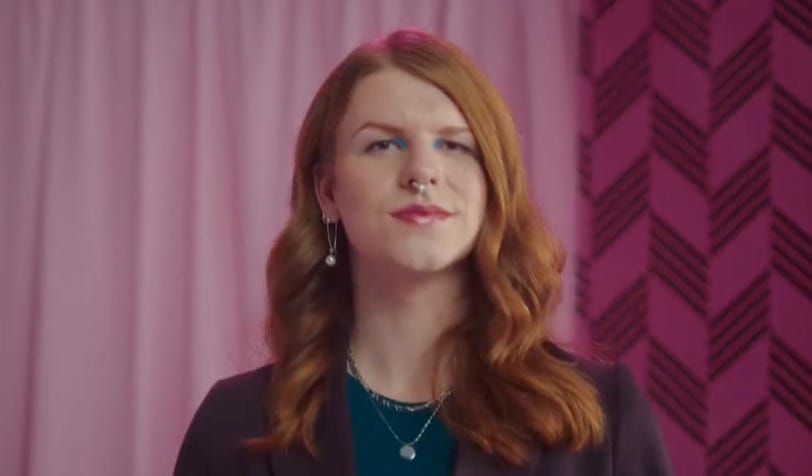The Hershey's Boycott Shows that Cancel Culture from the Right Is Much Worse Than That of the Left
We compare the differences between the two sides, and it's sick!
This week a new Hershey’s ad was revealed in a campaign that is part of the company's International Women's Day advertising plan. Hershey’s brought back its 'SHE bar' in order to "shine a light on the women and girls who inspire us every day."
One woman featured in the campaign is a trans-woman and transgender rights activist named Fae Johnstone.
"I grew up with few trans role models. Many young trans folks haven't met a trans adult," Johnstone wrote on Twitter. "I hope this campaign shows trans girls they can dream big and change the world too."
Immediately, upon the release of the video, people began attacking Hershey’s and calling for a boycott of the company. In fact the #BoycottHersheys hashtag was trending this morning on Twitter. The very people who attack the left for "cancel culture" are now calling for the cancelation of a company for an inclusive commercial.
For those who don't know, cancel culture is a phenomenon that has gained significant attention in recent years. While it has been criticized by some as being overly punitive and stifling free speech, cancel culture can also be seen in a positive light. At its core, cancel culture is about holding people accountable for their actions and words, particularly when they have caused harm or perpetuated harmful ideas. It can be a powerful tool for marginalized communities to speak up against systemic injustice and demand change. By creating consequences for harmful behavior, cancel culture can encourage people to think critically about their actions and strive to be more empathetic and inclusive. It can also serve as a catalyst for important conversations and actions around social justice issues, ultimately leading to a more equitable and compassionate society.
In recent years, Democrats have been at the forefront of the movement to boycott or cancel companies and individuals who engage in racist, hateful, or bigoted behavior. This approach is rooted in a commitment to social justice and equality, and seeks to hold people and organizations accountable for their actions.
One high-profile example of this approach was the boycott of the Chick-fil-A restaurant chain in 2012, after it was revealed that the company's CEO Dan T. Cathy had made anti-LGBTQ+ comments in regards to same-sex marriage. The boycott was led by LGBTQ+ advocates and their allies, who argued that the company's discriminatory practices and comments were unacceptable. This boycott had a significant impact, with many consumers choosing to take their business elsewhere and Chick-fil-A ultimately changing its policies.
Democrats have also been quick to call out and cancel individuals who engage in hate speech or promote racist ideologies. More recently, prominent conservative commentators such as Tucker Carlson and Laura Ingraham have faced backlash and boycotts over their racist and bigoted comments.
While some critics argue that cancel culture is overly punitive and stifles free speech, Democrats contend that it is a necessary tool in the fight against systemic racism, sexism, homophobia, and other forms of discrimination. By holding individuals and companies accountable for their actions, they argue, we can create a more just and equitable society for all. Ultimately, the approach of boycotting or canceling those who engage in hateful or bigoted behavior is part of a broader effort to build a more inclusive and tolerant society, where everyone is valued and respected.
While Democrats have been known to boycott or cancel companies and individuals who engage in hate speech or discrimination, Republicans have also been known to engage in similar tactics, albeit for different reasons. Specifically, Republicans have been known to boycott companies or individuals who they believe are pushing for greater social and economic equality, particularly in the context of issues like affirmative action, immigration, and gender identity. For example, today's boycott of Hershey’s, merely because they decided to put the face of a trans-woman on chocolate bar wrappers.
Both sides "cancel" people and businesses, but the reasons why they do it are incredibly far apart.





"Getting Canceled" has become an upward career move on the right - let's say you're a creative who had one good idea they're running out of ways to coast on (J.K. Rowling), or in a medium that's been slowly dying out for a long time (Scott Adams) or built up a reputation over decades for being tough to work with, a jerk to fellow cast and crew members and a pain to producers (Roseanne Barr).
Just say something edgy on Twitter that fits the Right's narrative and Get Canceled! You'll go from has-been to cause celebre overnight and be able to milk that through at least one junket tour, maybe more!
I’m an Independent voter so I see both sides with cancel culture. The goal of most of the left, apparently, is to punish and destroy. The right tends to have a narrative of ‘take your money somewhere else.’ BIG difference.